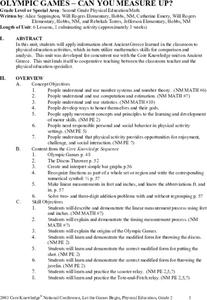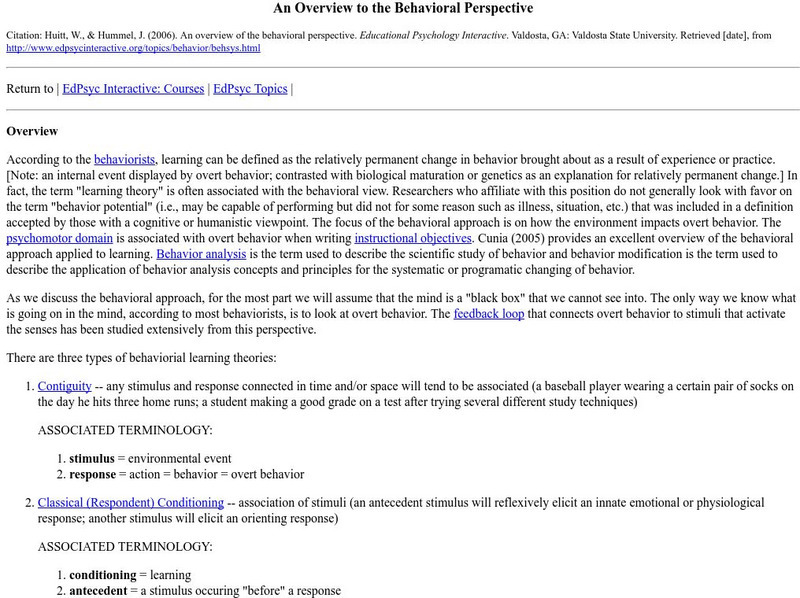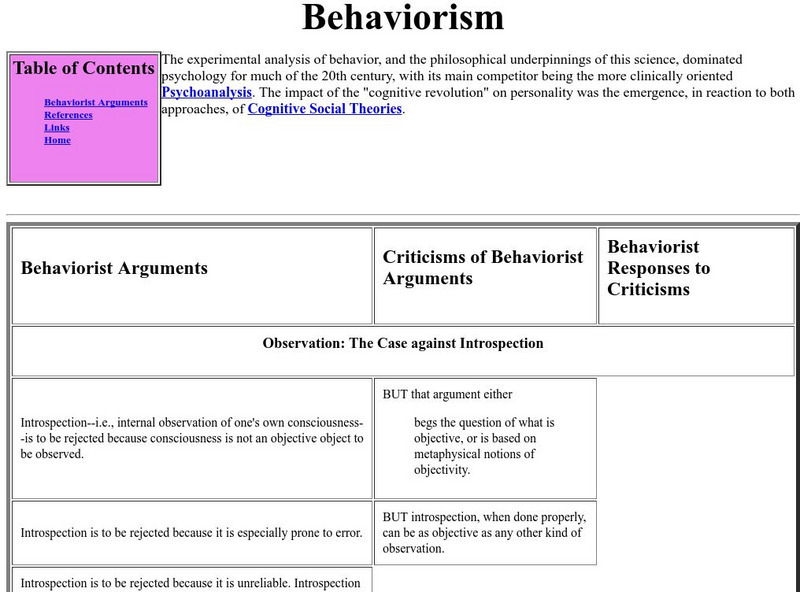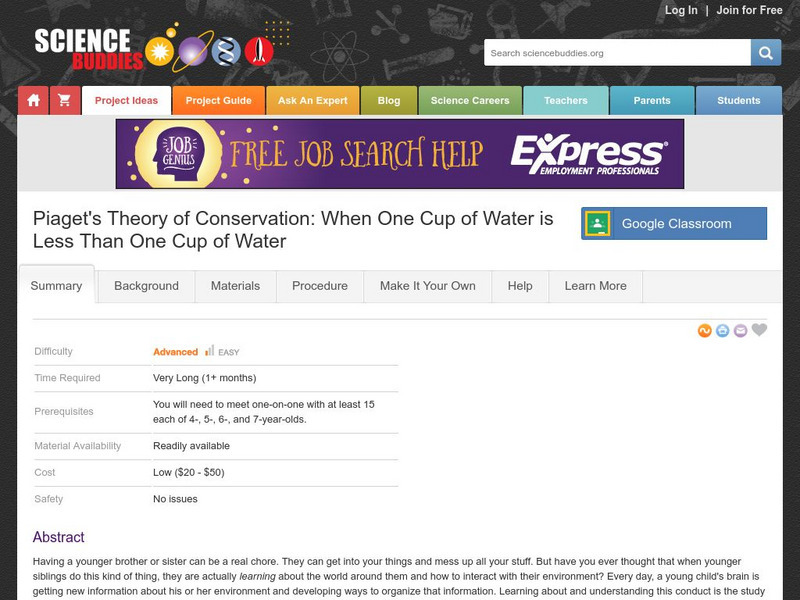Curated OER
Lesson Plans for the Novel "Jurassic Park"
High schoolers read the book, Jurassic Park, then answer questions.
Curated OER
Causal Patterns in Air Pressure Phenomena
Students explore the concept of how air moves and reflect through working in groups about the scientific concept. This lesson is an extension to another similar lesson. Also students develop and draw their own models.
Curated OER
Zoology
In this zoology word search, students find 30 words. This is a very difficult puzzle with complicated science vocabulary, but there is a word bank.
Curated OER
Doing Science: Computer Models
In this computer models worksheet, students read information about how scientists use computer models to advance the work of science. Students also answer a critical thinking question comparing computer simulations to direct observations.
Curated OER
From Molecules to Mole Day Do's
Students recognize methods used to define the mole. After converting various quantities to the mole, students provide a context for understanding the usefulness of scientific notation and the mole.
Curated OER
Yeast Cells and Their Environment
Middle schoolers create their own experiment in which they have yeast cells growing in liquid environments. They examine the relationship between humans and microorganisms. They also practice using the scientific method.
Curated OER
Nazism
Tenth graders explore the acts of the Nazi party and discuss how people can commit atrocities against humanity. They discuss the aspects of the Aryan race that the Nazis identified with and how they led them to think they should purify...
Curated OER
Why Were the Japanese Interned During World War II?
Seventh graders analyze sources to determine why Japanese-Americans were placed in internment camps during World War II. They discuss the fact that individual rights are sometimes taken by institutions because of fear and paranoia. They...
Curated OER
Exploring Explorers
Ninth graders illustrate the routes taken by different explorers on a world map. They explain the need for the different exploration voyages. Students explore the web for information that may contain different points of view or...
Curated OER
Feedback and Flowcharts
Sixth graders explain what a negative feedback system is and they distinguish it from a positive feedback system. They describe examples of how negative feedback is used in both nature and technology. , Students define homeostasis, and...
Curated OER
Olympic Games - Can You Measure Up?
Students complete 6 units to learn about Ancient Greece and the Olympic games through physical education activities as well as math activities. In this Ancient Greece lesson, students complete multiple activities in 6 lessons including...
Curated OER
Heat Transfer and Pollution
Students perform computer simulations on air dispersion. In this chemistry lesson, students calculate energy transfer based on specific heat and temperature change. They explain the causes of smog.
Curated OER
Where My Peeps At?
Students conduct a series of activity that demonstrates Charles' and Boyle's Law. In this chemistry lesson, students determine the relationship among pressure, volume and temperature. They solve problems using mathematical equation.
Other
Valdosta State: The Behavioral System
Excellent review of behavioral psychology. Presents the four types of behavioral theories in outline form. Has links to more details.
Other
E Learn Portal: Origins of Treatment and Defining Abnormal Behavior Continued
Provides an overview of the various theories of how to explain abnormal behaviors.
Other
Great Ideas in Personality Behaviorism
Comparative analysis of Behaviorism and more clinical psychological theories of behavior. Behavioristic arguments, criticisms of Behavioristic arguments, and Behavioristic responses are presented. References, suggested readings and...
Houghton Mifflin Harcourt
Houghton Mifflin Harcourt: Cliffs Notes: Perspectives on Abnormal Behavior
An overview of the different models for interpreting and treating abnormal behaviors.
Science Buddies
Science Buddies: Piaget's Theory: One Cup of Water Is Less Than One Cup of Water
In this human behavior science fair project, the student will learn about Piaget's developmental stages and the Theory of Conservation. The student will investigate the age at which children understand the equality of numbers and mass....
Other
Social Movement Theory: Resource Mobilization Theory
Need to write a paper on Social Movement Theory? This resource features a sample of a highly academic starter paper.
Science Buddies
Science Buddies: Testing Behavioral Incentives
Research has shown that positive reinforcement is an effective means of influencing behavior. This experiment looks further to determine which type of reinforcement-praise or reward-is more effective with young children. The objective of...
Khan Academy
Khan Academy: Theories of Attitude and Behavior Change Questions
This ten-question quiz helps to prepare for the MCAT pertaining to theories of attitude and behavior change.
Khan Academy
Khan Academy: Theories of Language Acquisition
This five-question quiz focuses on Theories of Language Acquisition.
Khan Academy
Khan Academy: Theories of Personality Questions
This is a 10-question quiz pertaining to Theories of Personality. Prep for the MCAT test.
Houghton Mifflin Harcourt
Houghton Mifflin Harcourt: Cliffs Notes: Theories of Deviance
Read about four theories related to deviance and criminology which have emerged within the past 50 years.
























